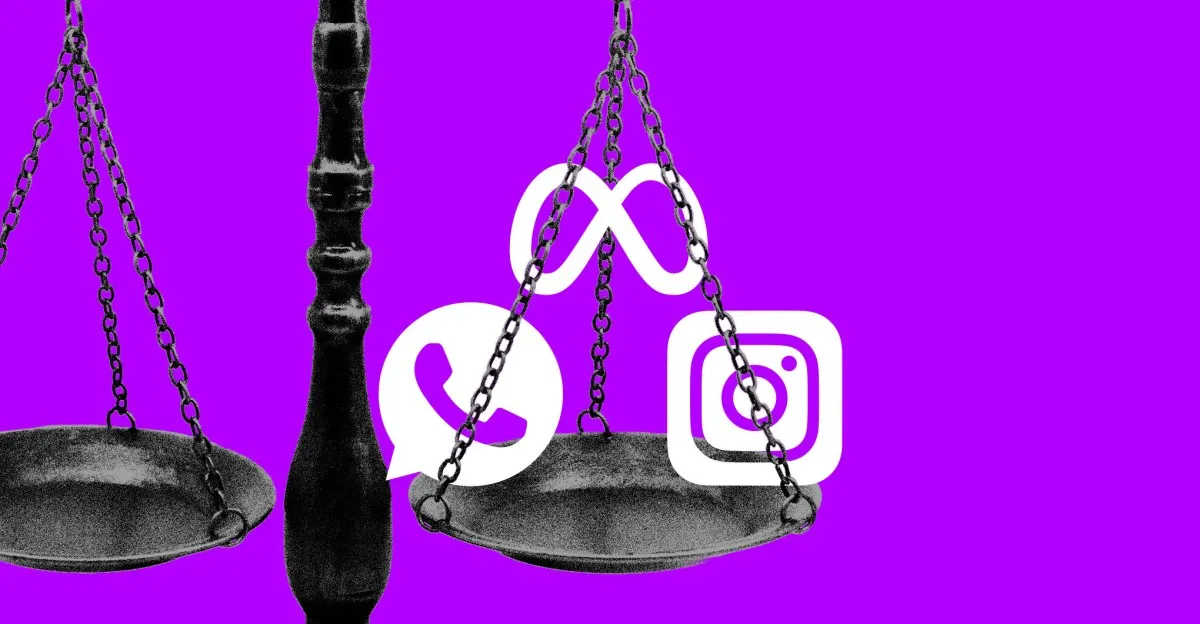
During a recent trial in a Washington, DC courthouse, Mark Zuckerberg, CEO of Meta, displayed a rare moment of levity when asked about the company's decision to acquire WhatsApp for a staggering $19 billion in 2014. Meta’s lead attorney, Mark Hansen, inquired if Zuckerberg was “happy” with the investment, to which he responded with a grin, stating, “I’d do it again.” This statement underscores the significance of WhatsApp and Instagram in establishing Meta as one of the most dominant tech companies globally.
Currently, the U.S. government, through a Federal Trade Commission (FTC) antitrust lawsuit, is challenging Meta’s acquisitions. The trial commenced on April 14th and has seen Zuckerberg testify for approximately 13 hours across three days. A significant portion of his testimony was devoted to countering the FTC's argument that he acquired both WhatsApp and Instagram not to enhance them but to eliminate potential competition.
The FTC claims that Zuckerberg purchased WhatsApp due to concerns that private messaging apps could evolve into robust social media platforms. During his testimony, Zuckerberg acknowledged that this was a consideration but believed it was “extremely unlikely” for WhatsApp to rival Facebook, especially after meeting its co-founders, Jan Koum and Brian Acton. He described the founders' apparent disdain for social media and advertising, indicating that he had to encourage them to incorporate more social features, such as Stories, into WhatsApp post-acquisition.
In court, an email was presented, detailing an early meeting between Zuckerberg and Koum, where Zuckerberg described Koum as “unambitious” and noted that prior to the acquisition, WhatsApp was not pursuing expansion. Zuckerberg viewed WhatsApp’s early growth as indicative of a broader shift in online communication, moving away from public interactions on platforms like the Facebook News Feed to more private conversations.
He justified the hefty price tag for WhatsApp, viewing it as a valuable asset that would allow Facebook to adapt to changing communication trends. Moreover, he perceived WhatsApp as a strategic advantage in his complicated relationships with tech giants Apple and Google, stating, “We’re always worried about them messing with us.” He further explained that acquiring WhatsApp would enhance his negotiating position regarding app store policies, although he later admitted uncertainty about how much this acquisition actually helped.
At the time of WhatsApp's acquisition, an internal document projected that the app would reach 2 billion users by 2024. However, Zuckerberg revealed in court that WhatsApp has now amassed nearly 3 billion users. Furthermore, Meta generates approximately $10 billion annually from advertisements that connect users to businesses via WhatsApp, Instagram, and Messenger.
Instagram, which posed a more direct threat to Facebook, was also a focal point of the FTC's claims. They argued that Zuckerberg acquired Instagram to “neutralize” it as a competitor. However, Zuckerberg testified that he wasn't concerned about Instagram until it surpassed 1 billion users. To mitigate the risk of losing user engagement to Instagram, he instructed the Instagram team to reduce feature integrations with Facebook, a move that did not sit well with Instagram's co-founders, Kevin Systrom and Mike Krieger. Both left the company shortly after, although Zuckerberg noted that Systrom remained at the helm longer than expected.
Throughout his testimony, Zuckerberg highlighted the resources he allocated to Instagram to combat spam and foster growth. When Instagram was acquired, it had approximately 10 million users, and Zuckerberg aimed for it to reach 100 million users. Today, the platform boasts over 2 billion users, illustrating that his investments in both Instagram and WhatsApp exceeded even his original expectations.
As Zuckerberg's testimony drew to a close, former Meta COO Sheryl Sandberg was called to the stand. She addressed an email she sent to Zuckerberg around the time of the $1 billion Instagram acquisition, in which she expressed concerns about the price being “way too much.” In a moment of reflection, Sandberg admitted, “I think I was wrong. Like, very wrong.” This candid acknowledgment highlights the unpredictable nature of tech investments and the remarkable success of Meta’s acquisitions.